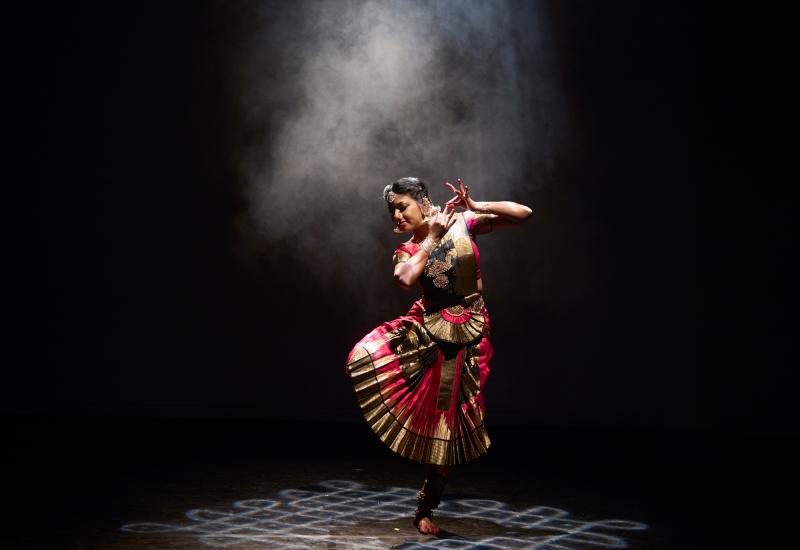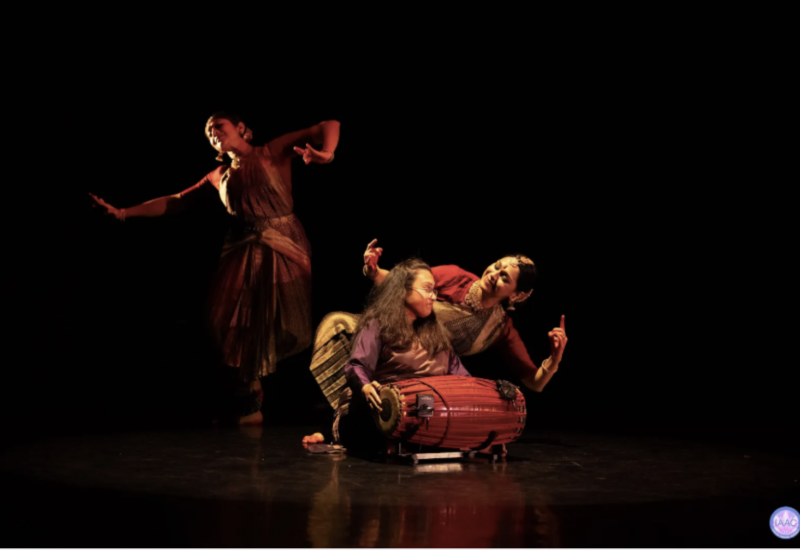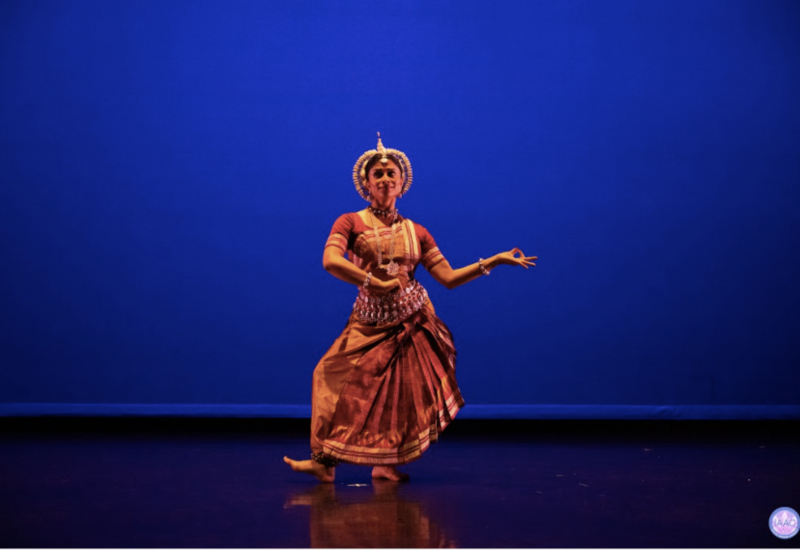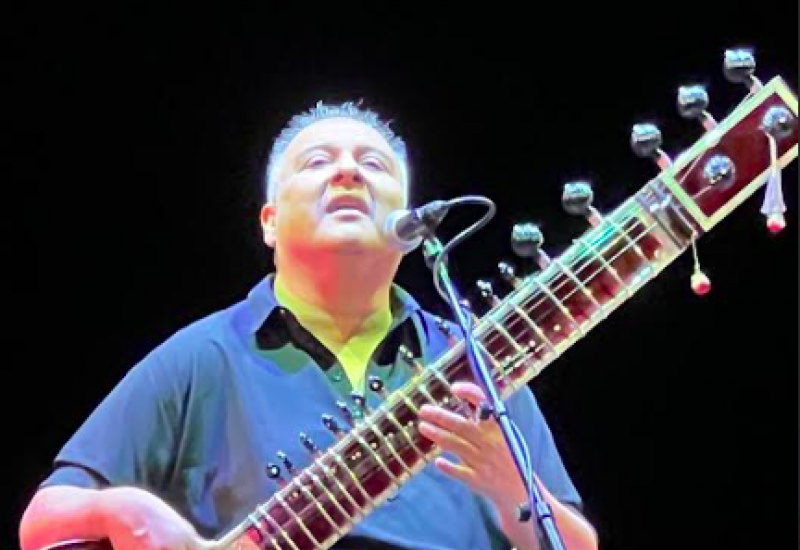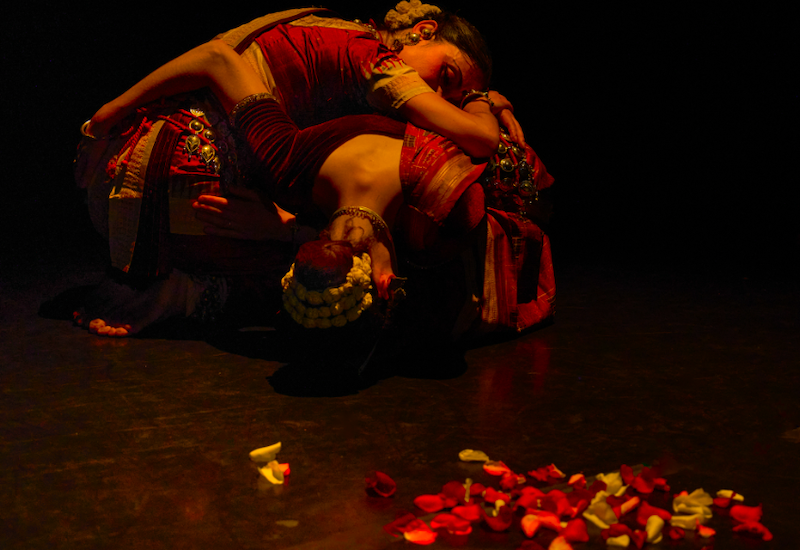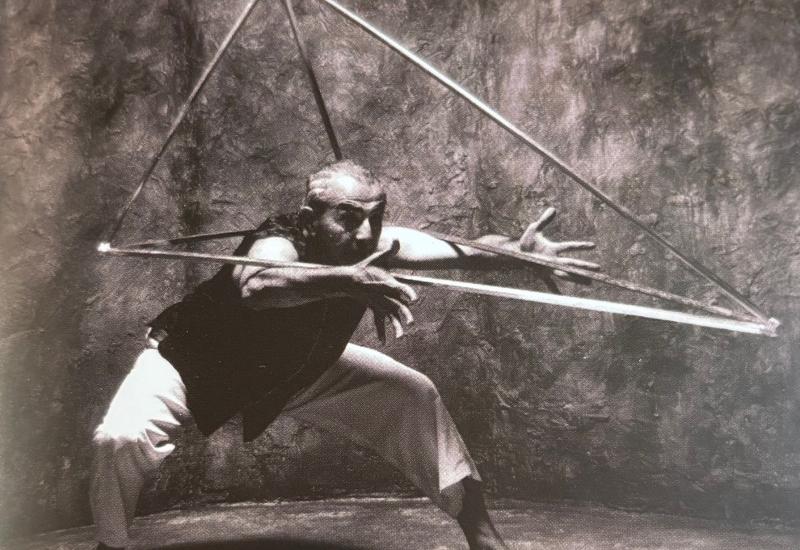Rizwan-Muazzam Qawwals
Rizwan–Muazzam Qawwals, Luton Library Theatre, 22 March 2017 – Reviewed by Sanjeevini Dutta
The first performance of the national tour, promoted by Asian Arts Agency, of the renowned Rizwan and Muazzam Qawwals, nephews of the great Nusrat Fateh Ali Khan, took to the stage of Luton Central Library on a mid-week evening, sending audiences into a frenzy of emotion.
It was an exposition of Qawwali, the devotional singing of the Sufi tradition (an unorthodox sect of Islam), which has its roots in Sind and Punjab of post-Independence Pakistan, but was also practised by the Sufi communities dotted around India. The tradition venerates Sufi saints such as Moinuddin Chisti or Lal Qalandar, through lyrics sung in melodic variations.
This form of singing with several voices, the lead vocalists supported by a chorus, and percussion from tabla and hand clapping, gained a Western following through the extraordinary virtuosity of Nusrat Fateh Ali Khan from the 1980s and to his premature death in 1997. So widespread was his fame that even Madonna had expressed a wish to collaborate with Fateh Ali Khan. Luton hosted Nusrat in 1985 and one young man in the audience was Steve Abbot, later to become a music producer. Steve was to befriend American singer Jeff Buckley (of Gracefame), a legendary voice who died young, in Paris some years later over their shared loved of Qawwali.
The Luton performance was bookended by two big hitting numbers: 'Alla Hoo' and 'Mast Qalandar'. The format of Qawwali is set: an instrumental prelude, followed by the alap (the improvisation before the rhythm enters), then the verse-by-verse delivery of lyrics, the refrain picked up by the chorus, to virtuosic vocal acrobatics and the sargam (sung syllables with rhythmic play) to an unheralded end.
The vocal range and dexterity of the musicians alone is not enough but it is the emotional intensity that draws the audience into the depths and takes one to spiritual heights. Some of the best moments of the performance were when a line is taken and repeated several times with a different inflection or where the two vocalists merge their voices in harmony or contrapuntal singing. The mounting emotion grips the listener and the enveloping joy washes over the body and soul. The words of Bulleh Shah still echo, O Laalini mera piya ghar aaya , 'O precious, my beloved has come home’.
The sheer enjoyment of the Luton audiences: their anticipation of lyrics, singing-along in off-key notes, the arms up in the air as in a happy-clappy congregation, is a testament to the great love of mystical poetry amongst the Pakistani community. The sufi-bhakti tradition of viewing god as the lover shows how closely the Hindu and Muslim traditions dating back to the sixteenth century are aligned. Moreover, many of the lyrics are in Panjabi, the common language spoken by Hindus, Sikhs and Muslims.
The opening concert of Rizwan-Muazzam Qawaals was an absolute treat regardless of familiarity with the genre or not. Each song eulogising a Saint had at its heart an expression of love and devotion. While in the capital, a mad man was mowing down innocent people outside the Parliament, the love of humanity and the maker was pouring forth from the visiting qawwals in Luton.









